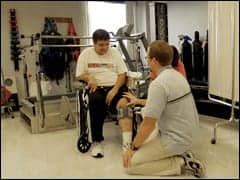.png)
The study reportedly encompassed 126 MTBI patients, who completed baseline questionnaire assessments within 2-week of injury. Researchers report that 107 study participants completed follow-up questionnaire assessments at 3 months and at 6 months. The study notes that researchers used a series of self-report measures to analyze cognitive, behavioral, and emotional responses to MTBI. The results indicate that the primary outcome yielded from the ICD-10 diagnosis of PCS. Researchers reportedly compared demographic and clinical characteristic variables to PCS cases and non-cases. Researchers add that they used individual and multivariate logistic regression analysis to pinpoint predictors of PCS.
The study’s results report that of the 107 MTBI patients, 22% exhibited the criteria for PCS at 3 months and 21% exhibited the criteria at 6 months. According to researchers, the individual logistic regression analysis indicated a link between and the risk of developing PCS and negative MTBI perceptions, stress, anxiety, depression, and extreme “all-or-nothing,” behavior.
The results also indicate that the multivariate analysis spotlighted “all-or-nothing” behavior as a key predictor for the development of PCS at 3 months. Negative MTBI perceptions reportedly predicted the onset of PCS at 6 months.
Researchers conclude that the study participants’ perceptions of their head injury and behavioral responses may play key roles in the development of PCS.
Source: PubMed




